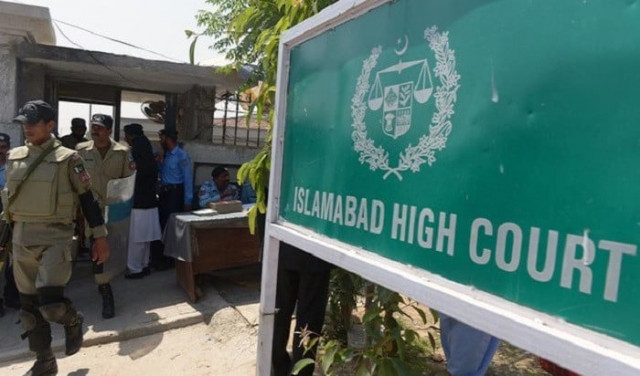Private persons can’t file sedition cases: IHC
Unveils 7-page detailed verdict in Shandana Gulzar case

The Islamabad High Court (IHC) has issued a guideline with regard to sedition cases, noting that such complaints must be initiated by the federal or a provincial government by an authorized person “after considering the relevant factors of the alleged incident with reasons”.
The IHC on Wednesday unveiled a seven-page detailed verdict in the Shandana Gulzar Khan case. Shandana, a Pakistan Tehreek-e-Insaf (PTI) and lawmaker leader, was booked in a sedition case on January 30 over controversial remarks that she made in a TV show. Shandana was the third PTI lawmaker to be booked for alleged sedition after Azam Swati and Shahbaz Gill.
In the FIR, the complainant had alleged that the PTI leader had made serious allegations against the armed forces and attempted to incite violence. The FIR said the PTI leader had implied that terrorism was spread across Khyber Pakhtunkhwa (K-P) province in a planned way.
According to the FIR, Shandana had tried to create disharmony and incite violence in the country. A single judge bench of the IHC comprising Justice Mohsin Akhtar Kayani, however, quashed the FIR on March 24.
In the detailed verdict, the court noted that on plain reading of the contents of the FIR as well as the recorded interview text, it appeared that the accused made sarcastic remarks about certain personalities and as such there was no element of incitement or sedition in the comments.
Read IHC seeks govt reply on Imran’s plea for security
It said in cases of sedition, allegations of incitement of public to insurrection and rebellion are required to be demonstrated either through words used or from any other evidence or action of the accused.
"Sedition has been described, as disloyalty in action and the law considers as sedition all those practices, which have for their object to excite discontent or dissatisfaction, to create public disturbance, or to lead to civil war, which is not the case in hand."
Presenting a seven-point guideline, the court noted that the offence must contain promotion of feeling of enmity, hatred or ill-will among different religious or racial or linguistic or regional groups or castes in order to qualify as sedition.
“Words, deeds or writing used to disturb the tranquility of the state or to subvert the government [or to] incite the people to incursion and rebellion [may qualify as sedition].”
The verdict said such a complaint must be initiated by the federal or a provincial government by an authorized person under the law after considering the relevant factors of the alleged incident with reasons.
“Private persons cannot agitate the matter regarding seditions of charge; rather it should be initiated, inquired and investigated by the government or at least on their direction.
“Criminal conspiracy can only be considered if the other principal offence comes on record on the basis of allegations referred [to] in the complaint in each case. Authorized officers shall state reason before issuing any sanction in terms of Sections 196 and 196-A, CrPC with speaking order,” it said.
The court also noted that no useful purpose was served by placing such criminal cases before the court as it will consume much time and resources of the state with unnecessary burden.
“Therefore, quashing of such FIRs is more advisable," it added.



















COMMENTS
Comments are moderated and generally will be posted if they are on-topic and not abusive.
For more information, please see our Comments FAQ